What if my blood pressure drops too low on antihypertensive medication?
I am a primary care physician in Family Medicine and I hope my answer helps you.
For those who suffer from high blood pressure. All know. If the blood pressure is too high, it will not only cause obvious discomfort in the body. And long-term high blood pressure will occur cardiovascular and cerebrovascular diseases and many other complications. So hypertension is often through various ways to actively reduce blood pressure.
However, lowering your blood pressure is not as good as keeping it within the ideal range, and blood pressure that drops too low is not appropriate.
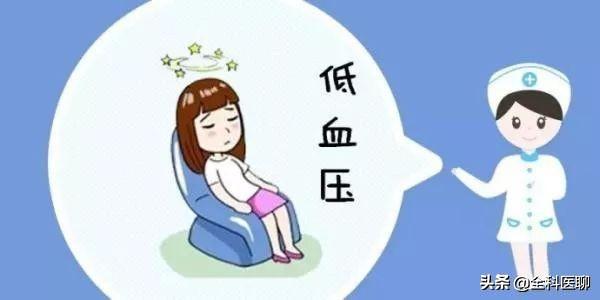
Why can't blood pressure be as low as possible?
- Because blood pressure is the source of power to ensure adequate blood pressure perfusion to the body organs, especially older people, more often combined with atherosclerosis, blood pressure is too low will lead to insufficient vascular filling, the body's vital organs of the blood supply is insufficient, aggravate the occurrence of cardiovascular and cerebrovascular diseases.
- In addition, except for special circumstances that call for emergency blood pressure control, it is best to lower blood pressure smoothly and
- In addition, low blood pressure can exacerbate postural hypotension. Sometimes older people, who are already prone to postural hypotension because of arteriosclerosis of the blood vessels, are more likely to have episodes of postural hypotension with low blood pressure.
- In addition, people with combined cerebrovascular disease, blood pressure should not be lowered too low, for example, acute cerebral infarction, patients need appropriate high blood pressure to maintain vascular filling, improve ischemic performance. When combined with cerebral hemorrhage, similarly do not lower the blood pressure too low.
- In many people with current comorbid carotid artery stenosis, too low a blood pressure can exacerbate the lack of blood supply to the brain.
- In addition, older people, especially hypertensive patients over 80 years old. The blood pressure target value is relaxed, and it is also important to keep the blood pressure appropriately high, high pressure can be at 150mmHg . The aim is also to avoid insufficient vascular perfusion due to too low blood pressure.
- Elderly people, in particular, simply have elevated systolic blood pressure and normal or low diastolic blood pressure. Excessive pursuit of lower systolic blood pressure will inevitably lead to a further fall in diastolic blood pressure. It will also result in inadequate perfusion manifestations in vital organs.
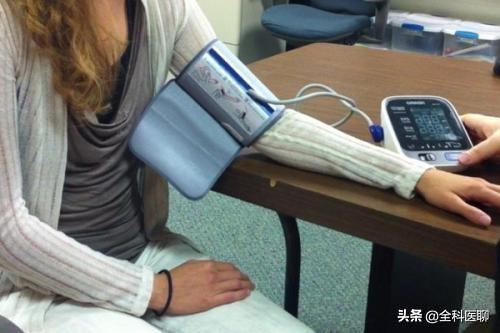
Back to the question, what if my blood pressure drops too low on antihypertensive medication?
It means that hypertension medication is not reasonable anymore.
Dosage adjustment of antihypertensive drugs or adjustment of antihypertensive drugs is recommended.
- Selection of antihypertensive drugs is recommended to choose a long-acting antihypertensive drugs, this antihypertensive drugs to take less often, compliance is a little better.
- Choose a slow and controlled release preparation, this type of drug after taking, the body absorption lasts a long time, relatively slow to play a role, but also does not appear to be too fast absorption of the drug caused by low blood pressure.
- Hypertensive friends, especially the elderly, are advised to avoid standing up violently from a sitting or squatting position after taking medication to avoid causing episodes of postural hypotension.
- It is recommended that blood pressure be measured several times a day at different times, and that the time of medication be adjusted according to the different absorption of the medication. Each person's blood pressure has normal fluctuations every day, such as a peak in the morning or in the afternoon, and low blood pressure at night.

In summary, high blood pressure medication appears too low blood pressure, find out the reason, timely adjustment. Avoid the discomfort caused by low blood pressure.
I am.@General Practice ChatSharing health knowledge for you every day.
The first thing you have to do with this question is to figure out if the lowering of blood pressure is caused by antihypertensive medication or not.
There are several common causes of lower blood pressure:
1. Abnormal fluctuations in one's own blood pressure
Our daily blood pressure fluctuates all the time, and there are abnormal fluctuations that may cause the phenomenon of low blood pressure, commonly known as postural hypotension and postprandial hypotension. Postural hypotension refers to the symptoms of hypotension such as dizziness, blackouts, etc. When we change from lying position to standing position, we find that the systolic blood pressure drops by ≤20mmHg or the diastolic blood pressure drops by ≥10mmHg within 3 minutes of blood pressure measurement, and the hypotensive symptoms such as dizziness and blackouts are also present. And postprandial hypotension refers to the systolic blood pressure dropped more than 20mHg within 2 hours after eating compared to the preprandial period, or although the blood pressure didn't drop that much, but the systolic before meal was more than 100mmHg while the systolic after meal was less than 90mmHg or the symptom of low blood pressure was appeared, and this situation is not only related to the damage of our autonomic nerve function, but also related to the vascular elasticity deterioration.
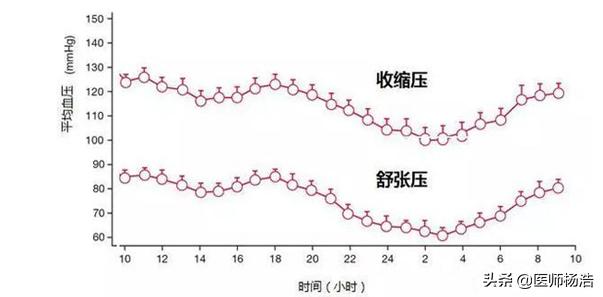
2. Certain heart diseases
For example, cardiac arrhythmias, heart valve lesions, myocardial infarction, heart failure, etc. may cause cardiogenic hypotension, and only by treating these diseases can we bring our blood pressure back to normal.
3. Abnormal secretion of hormones in the endocrine system
Decreased thyroid function, for example, slows the heart rate and reduces blood volume, which tends to cause a drop in blood pressure.
4. Other
In addition, eating and drinking less water, having less peripheral vascular resistance (e.g., warmer outside temperatures), or taking other medications that may cause a drop in blood pressure such as anti-anxiety and depression medications, anti-Parkinson's disease medications, and so on.
After eliminating these possible causes of blood pressure drop, we then consider whether it is caused by antihypertensive drugs. Antihypertensive drugs should not be easily reduced or stopped, as this may cause a rebound in blood pressure, which may be even higher, so it is important to monitor the changes in your blood pressure.
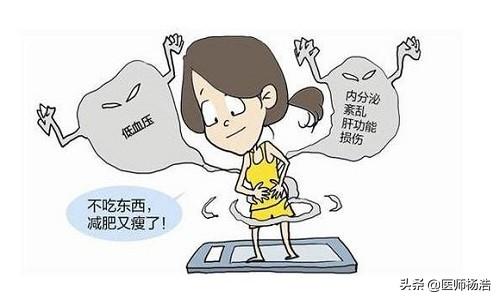
What should I do if it is determined that my blood pressure is too low due to antihypertensive medication?
First of all, it is important to clarify how low the blood pressure is too low. Generally speaking, the blood pressure of hypertensive patients falls below 110/60mmHg, at which point the blood pressure is usually said to be a little on the low side. But still do not easily reduce antihypertensive drugs, if monitoring their own blood pressure for 2-3 days or so low, then we can consider reducing the amount of antihypertensive drugs, and then continue to monitor the blood pressure changes, according to the blood pressure, under the guidance of a professional doctor to decide whether it is possible to stop the drug.
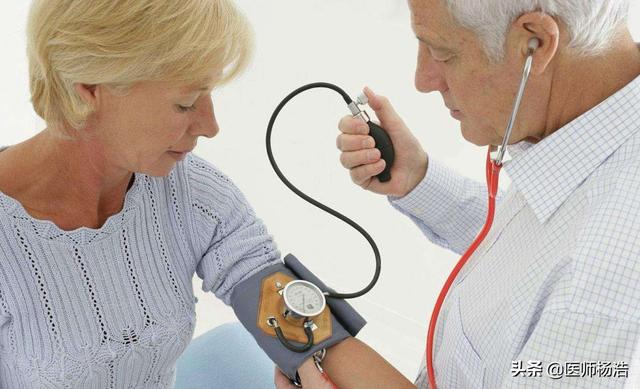
I am physician Yang Hao, specializing in the diagnosis and treatment of common and multiple diseases, chronic disease management, health science. Welcome to like, forward, leave a message, pay attention to this headline, let you live a healthier life!
It is serious if it drops to hypotension. Hypotension is defined as a persistent blood pressure below 90/60 mmHg in adults (below 100/70 mmHg in the elderly). Western medicine divides it into three categories: somatic, postural, and secondary. Constitutional hypotension is the most common, generally believed to be related to physical weakness and heredity, mostly seen in women aged 20 to 50 years old and the elderly; postural hypotension is a patient standing for a long period of time or from the lying position to the sitting position, standing position, due to poor regulation of blood pressure, a sudden drop in blood pressure of more than 20mmHg, accompanied by the corresponding symptoms; secondary hypotension is more often caused by certain diseases or drugs, such as diarrhea, hemorrhage, Rheumatic cardiomyopathy, myocardial infarction, spinal cord cavernous disease, stroke, antihypertensive drugs or antidepressants.
Hypotension belongs to the category of "dizziness" and "deficiency" in Chinese medicine. It is characterized by qi deficiency, involving the heart, lungs, spleen, kidneys and other organs. The heart is the master of the blood, the lungs towards the veins, the heart and lungs of the gas is insufficient, can not promote the blood line in the veins; spleen qi is insufficient, not to generate qi and blood; kidney qi deficiency, qi and blood running powerlessness can lead to blood is not full of support for the veins and birth of low blood pressure syndrome.
What exactly are the clinical manifestations of hypotension?
When the disease is mild, there are only dizziness, headache, loss of appetite, fatigue, pallor, dyspepsia, easy to get seasickness, and poor emotional self-control, slow reflection or spirit is not invigorated. In severe cases, the symptoms include palpitations, dizziness when standing, dyspnea, slurred speech, ataxia, cold limbs and even fainting.
This question and answer are from the site users, does not represent the position of the site, such as infringement, please contact the administrator to delete.